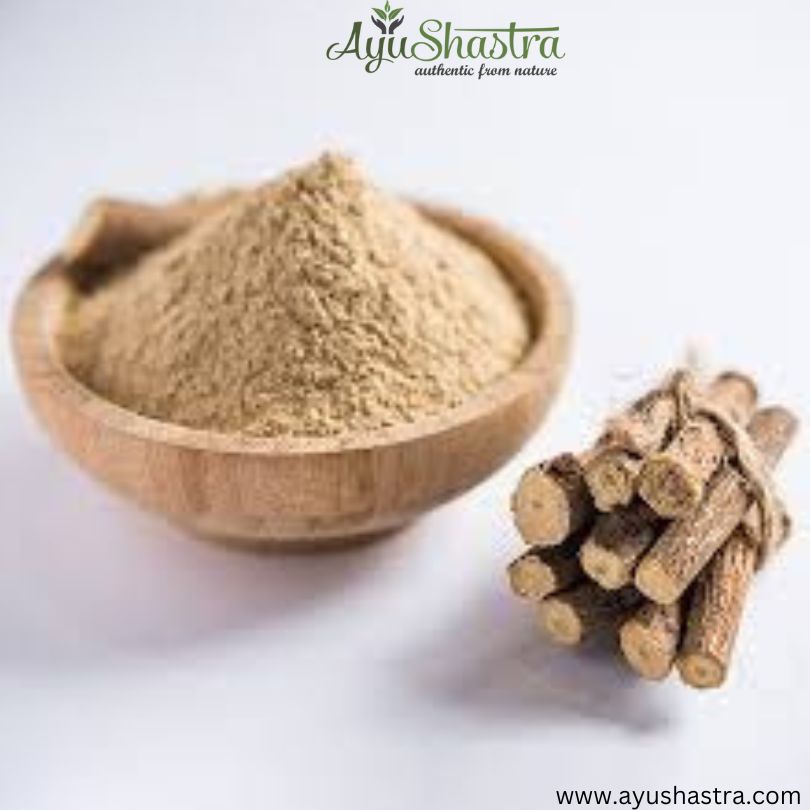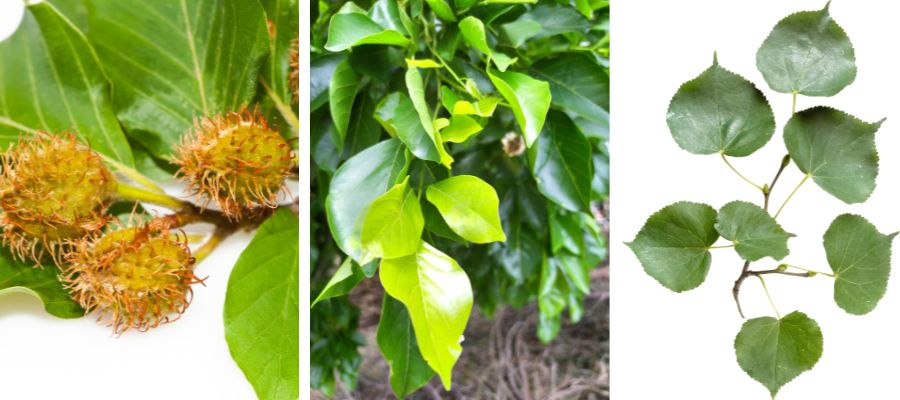
SCIENTIFIC NAME: Glycyrrhiza glabra
HINDI NAME: Yashtimadhu, Mulethi, Jethimadhu
ENGLISH NAME: Licorice, Liquorice
FAMILY: Fabaceae
SHORT DESCRIPTION
Yashtimadhu has long been used in Ayurvedic medicine to treat respiratory and digestive problems. It is classed as a Rasayana, which has a significant rejuvenative impact on the body and also aids in the improvement of memory and cognitive capacities. Its sweet flavour, heavy and unctuous properties, with cool potency assist to balance vata, pitta, and rakta (blood-related conditions).
USES & HEALTH BENEFITS
- Provides relief in chronic acidity, ulcers
- Improves cough & sore throat
- Aids to cure chronic cough, breathing difficulties & bronchial conditions.
- Anti-inflammatory
- Improves immunity
- Promotes digestion
- Amazing for skin complexion
- Manages diabetes
- Good for oral health especially mouth ulcers
- Aids in hormonal regulation
- Useful in skin conditions with burning sensation, inflammation (Pitta involvement)
PRECAUTIONS & SIDE EFFECTS
- Yashtimadhu powder overdosage may result in bloating or water retention in the body.
- It is strongly suggested not to use yashtimadhu powder without first consulting a doctor.
- Excessive use of this powder might potentially result in hyper-mineralocorticoids.
HOW TO USE
- Boil a few mulethi sticks in water to make a mulethi decoction or kadha and, use this ayurvedic kadha multiple times each day to treat coughs and colds.
- In case of seasonal cough, combine a tablespoon of mulethi powder and a teaspoon of honey in a glass of lukewarm water and have this tincture twice a day.
- Make a decoction of mulethi root, tulsi leaves, and pudina leaves in water to treat nasal and chest congestion.
- Take 1 tablespoon each of mulethi root powder, sitopaladi churna, mixed with honey twice a day to relieve throat discomfort.
- For other health conditions, take yashtimadhu as directed by the Ayurveda expert.










